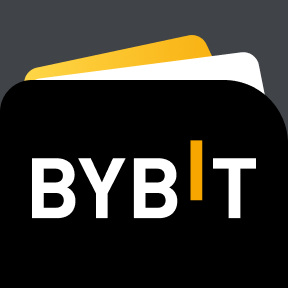
NexusTrader is a professional-grade open-source quantitative trading platform, specifically designed for large capital management and complex strategy development, dedicated to providing high-performance, scalable, and user-friendly quantitative trading solutions.
- 🚀 Professionally Optimized Order Algorithms: Deep optimization for algorithmic orders including TWAP, effectively reducing market impact costs. Users can easily integrate their own execution signals to achieve more efficient and precise order execution.
- 💰 Professional Arbitrage Strategy Support: Provides professional optimization for various arbitrage strategies, including funding rate arbitrage and cross-exchange arbitrage, supporting real-time tracking and trading of thousands of trading pairs to help users easily capture arbitrage opportunities.
- 🚧 Full-Featured Quantitative Trading Framework: Users don't need to build frameworks or handle complex exchange interface details themselves. NexusTrader has integrated professional position management, order management, fund management, and statistical analysis modules, allowing users to focus on writing strategy logic and quickly implement quantitative trading.
- 🚀 Multi-Market Support and High Scalability: Supports large-scale multi-market tracking and high-frequency strategy execution, covering a wide range of trading instruments, making it an ideal choice for professional trading needs.
-
Enhanced Event Loop Performance: NexusTrader leverages uvloop, a high-performance event loop, delivering speeds up to 2-4 times faster than Python's default asyncio loop.
-
High-Performance WebSocket Framework: Built with picows, a Cython-based WebSocket library that matches the speed of C++'s Boost.Beast, significantly outperforming Python alternatives like websockets and aiohttp.
-
Optimized Data Serialization: Utilizing
msgspecfor serialization and deserialization, NexusTrader achieves unmatched efficiency, surpassing tools likeorjson,ujson, andjson. All data classes are implemented withmsgspec.Structfor maximum performance. -
Scalable Order Management: Orders are handled efficiently using
asyncio.Queue, ensuring seamless processing even at high volumes. -
Rust-Powered Core Components: Core modules such as the MessageBus and Clock are implemented in Rust, combining Rust's speed and reliability with Python's flexibility through the nautilius framework.
| Framework | Websocket Package | Data Serialization | Strategy Support | Advantages | Disadvantages |
|---|---|---|---|---|---|
| NexusTrader | picows | msgspec | ✅ | Professionally optimized for speed and low latency | Requires some familiarity with async workflows |
| HummingBot | aiohttp | ujson | ✅ | Widely adopted with robust community support | Slower WebSocket handling and limited flexibility |
| Freqtrade | websockets | orjson | ✅ | Flexible strategy support | Higher resource consumption |
| crypto-feed | websockets | yapic.json | ❌ | Simple design for feed-only use | Lacks trading support and advanced features |
| ccxt | aiohttp | json | ❌ | Great REST API support | Limited WebSocket performance |
| binance-futures-connector | websocket-client | json | ❌ | Optimized for Binance-specific integration | Limited to Binance Futures |
| python-okx | websockets | json | ❌ | Dedicated to OKX trading | Limited to OKX platform |
| unicorn-binance-websocket-api | websockets | ujson | ❌ | Easy-to-use for Binance users | Restricted to Binance and resource-heavy |
The core of Tradebot is the Connector, which is responsible for connecting to the exchange and data flow. Through the PublicConnector, users can access market data from the exchange, and through the PrivateConnector, users can execute trades and receive callbacks for trade data. Orders are submitted through the OrderExecutionSystem, which is responsible for submitting orders to the exchange and obtaining the order ID from the exchange. Order status management is handled by the OrderManagementSystem, which is responsible for managing the status of orders and sending them to the Strategy.
- 🌍 Multi-Exchange Integration: Effortlessly connect to top exchanges like Binance, Bybit, and OKX, with an extensible design to support additional platforms.
- ⚡ Asynchronous Operations: Built on asyncio for highly efficient, scalable performance, even during high-frequency trading.
- 📡 Real-Time Data Streaming: Reliable WebSocket support for live market data, order book updates, and trade execution notifications.
- 📊 Advanced Order Management: Execute diverse order types (limit, market, stop) with optimized, professional-grade order handling.
- 📋 Account Monitoring: Real-time tracking of balances, positions, and PnL across multiple exchanges with integrated monitoring tools.
- 🛠️ Modular Architecture: Flexible framework to add exchanges, instruments, or custom strategies with ease.
- 🔄 Strategy Execution & Backtesting: Seamlessly transition from strategy testing to live trading with built-in tools.
- 📈 Scalability: Designed to handle large-scale, multi-market operations for retail and institutional traders alike.
- 💰 Risk & Fund Management: Optimize capital allocation and control risk exposure with integrated management tools.
- 🔔 Instant Notifications: Stay updated with alerts for trades, market changes, and custom conditions.
| OKX | Binance | BYBIT |
|---|---|---|
 |
 |
 |
- Python 3.11+
- Redis
- Poetry (recommended)
- build-essential
sudo apt-get update
sudo apt-get install build-essentialpip install nexustradergit clone https://github.com/RiverTrading/NexusTrader
cd NexusTrader
poetry installNote more details can be found in the installation guide
Here's a basic example of how to use nexustrader, demonstrating a simple buy and sell strategy on OKX.
from decimal import Decimal
from nexustrader.constants import settings
from nexustrader.config import Config, PublicConnectorConfig, PrivateConnectorConfig, BasicConfig
from nexustrader.strategy import Strategy
from nexustrader.constants import ExchangeType, OrderSide, OrderType
from nexustrader.exchange.okx import OkxAccountType
from nexustrader.schema import BookL1, Order
from nexustrader.engine import Engine
# Retrieve API credentials from settings
OKX_API_KEY = settings.OKX.DEMO_1.api_key
OKX_SECRET = settings.OKX.DEMO_1.secret
OKX_PASSPHRASE = settings.OKX.DEMO_1.passphrase
class Demo(Strategy):
def __init__(self):
super().__init__()
self.subscribe_bookl1(symbols=["BTCUSDT-PERP.OKX"]) # Subscribe to the order book for the specified symbol
self.signal = True # Initialize signal to control order execution
def on_failed_order(self, order: Order):
print(order) # Log failed orders
def on_pending_order(self, order: Order):
print(order) # Log pending orders
def on_accepted_order(self, order: Order):
print(order) # Log accepted orders
def on_partially_filled_order(self, order: Order):
print(order) # Log partially filled orders
def on_filled_order(self, order: Order):
print(order) # Log filled orders
def on_bookl1(self, bookl1: BookL1):
if self.signal: # Check if the signal is active
# Create a market buy order
self.create_order(
symbol="BTCUSDT-PERP.OKX",
side=OrderSide.BUY,
type=OrderType.MARKET,
amount=Decimal("0.1"),
)
# Create a market sell order
self.create_order(
symbol="BTCUSDT-PERP.OKX",
side=OrderSide.SELL,
type=OrderType.MARKET,
amount=Decimal("0.1"),
)
self.signal = False # Deactivate the signal after placing orders
# Configuration for the trading strategy
config = Config(
strategy_id="okx_buy_and_sell",
user_id="user_test",
strategy=Demo(),
basic_config={
ExchangeType.OKX: BasicConfig(
api_key=OKX_API_KEY,
secret=OKX_SECRET,
passphrase=OKX_PASSPHRASE,
testnet=True, # Use testnet for safe trading
)
},
public_conn_config={
ExchangeType.OKX: [
PublicConnectorConfig(
account_type=OkxAccountType.DEMO, # Specify demo account type
)
]
},
private_conn_config={
ExchangeType.OKX: [
PrivateConnectorConfig(
account_type=OkxAccountType.DEMO, # Specify demo account type
)
]
}
)
# Initialize the trading engine with the configuration
engine = Engine(config)
if __name__ == "__main__":
try:
engine.start() # Start the trading engine
finally:
engine.dispose() # Ensure resources are cleaned upThis example illustrates how easy it is to switch between different exchanges and strategies by modifying the config
class. For instance, to switch to Binance, you can adjust the configuration as follows, and change the symbol to
BTCUSDT-PERP.BINANCE.
from nexustrader.exchange.binance import BinanceAccountType
config = Config(
strategy_id="buy_and_sell_binance",
user_id="user_test",
strategy=Demo(),
basic_config={
ExchangeType.BINANCE: BasicConfig(
api_key=BINANCE_API_KEY,
secret=BINANCE_SECRET,
testnet=True, # Use testnet for safe trading
)
},
public_conn_config={
ExchangeType.BINANCE: [
PublicConnectorConfig(
account_type=BinanceAccountType.USD_M_FUTURE_TESTNET, # Specify account type for Binance
)
]
},
private_conn_config={
ExchangeType.BINANCE: [
PrivateConnectorConfig(
account_type=BinanceAccountType.USD_M_FUTURE_TESTNET, # Specify account type for Binance
)
]
}
)nexustrader supports multiple modes of operation to cater to different trading strategies and requirements. Each mode allows for flexibility in how trading logic is executed based on market conditions or specific triggers.
In this mode, trading logic is executed in response to real-time market events. The methods on_bookl1, on_trade, and
on_kline are triggered whenever relevant data is updated, allowing for immediate reaction to market changes.
class Demo(Strategy):
def __init__(self):
super().__init__()
self.subscribe_bookl1(symbols=["BTCUSDT-PERP.BINANCE"])
def on_bookl1(self, bookl1: BookL1):
# implement the trading logic Here
passThis mode allows you to schedule trading logic to run at specific intervals. You can use the schedule method to define
when your trading algorithm should execute, making it suitable for strategies that require periodic checks or actions.
class Demo2(Strategy):
def __init__(self):
super().__init__()
self.schedule(self.algo, trigger="interval", seconds=1)
def algo(self):
# run every 1 second
# implement the trading logic Here
passIn this mode, trading logic is executed based on custom signals. You can define your own signals and use the
on_custom_signal method to trigger trading actions when these signals are received. This is particularly useful for
integrating with external systems or custom event sources.
class Demo3(Strategy):
def __init__(self):
super().__init__()
self.signal = True
def on_custom_signal(self, signal: object):
# implement the trading logic Here,
# signal can be any object, it is up to you to define the signal
passThank you for considering contributing to nexustrader! We greatly appreciate any effort to help improve the project. If you have an idea for an enhancement or a bug fix, the first step is to open an issue on GitHub. This allows us to discuss your proposal and ensure it aligns with the project's goals, while also helping to avoid duplicate efforts.
When you're ready to start working on your contribution, please review the guidelines in the CONTRIBUTING.md file. Depending on the nature of your contribution, you may also need to sign a Contributor License Agreement (CLA) to ensure it can be included in the project.
Note Pull requests should be directed to the
mainbranch (the default branch), where new features and improvements are integrated before release.
Thank you again for your interest in nexustrader! We look forward to reviewing your contributions and collaborating with you to make the project even better.
Trading on our platform is free. Become a VIP customer to enjoy exclusive technical support privileges for $499 per month (Subscription Here)—or get VIP status at no cost by opening an account through our partnership links.
Our partners include global leading trading platforms like Bybit, OKX, ZFX, Bison and others. By opening an account through our referral links, you'll enjoy these benefits:
Instant Account Benefits
- Trading Fee Discounts: Exclusive discounts to lower your trading costs.
- VIP Service Support: Contact us after opening your account to become our VIP customer. Enjoy exclusive events and benefits for the ultimate VIP experience.
Act now and join our VIP program!
Click the links below to register
Connect with us on your favorite platforms:
-000000?logo=x&logoColor=white)


We recommend exploring related tools and projects that can enhance your trading workflows:
- Nexus: A robust exchange interface optimization solution that integrates seamlessly with trading bots like nexustrader, enabling faster and more reliable trading execution.
Nexustrader is available on GitHub under the MIT License. Contributions to the project are welcome and require the completion of a Contributor License Agreement (CLA). Please review the contribution guidelines and submit a pull request. See the LICENSE file for details.



